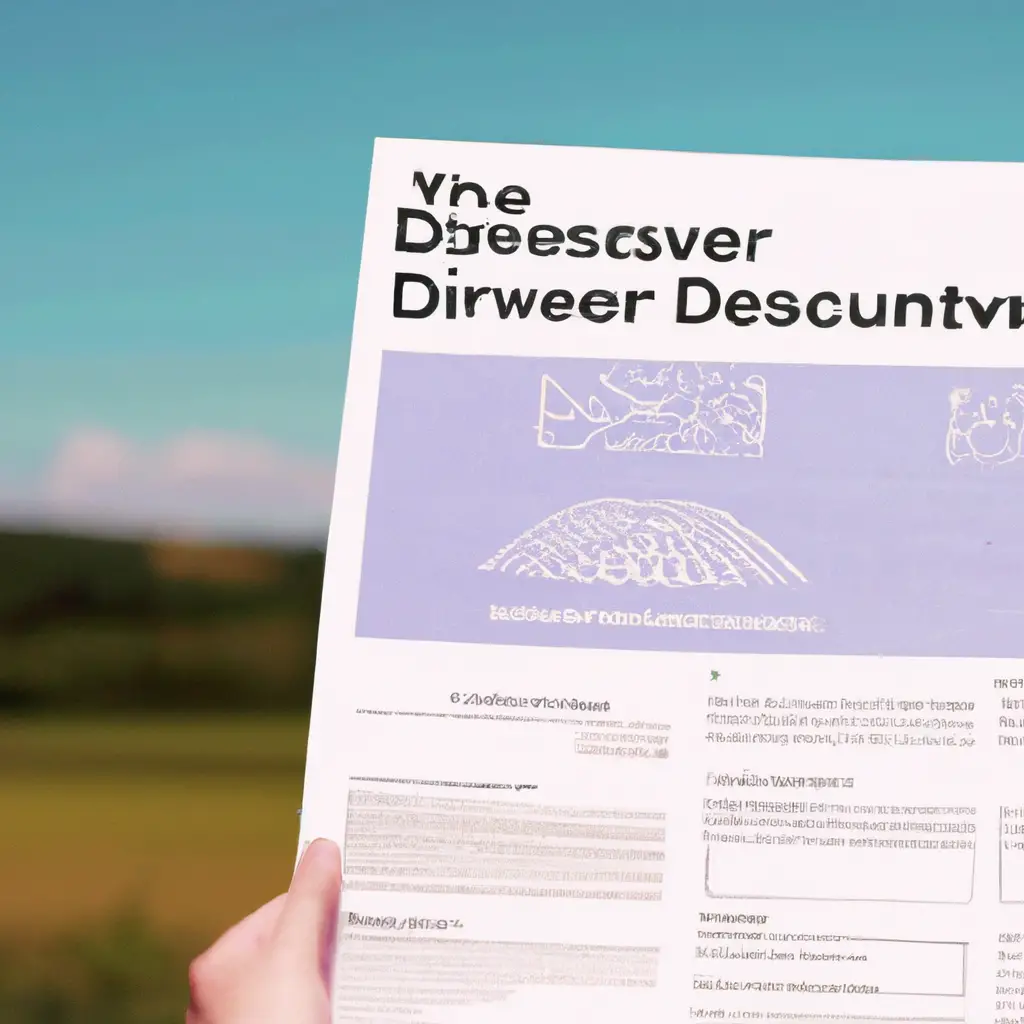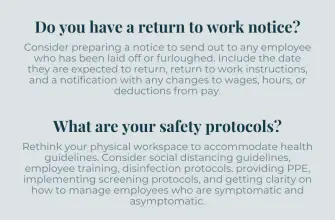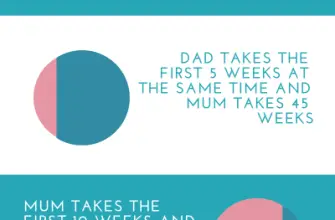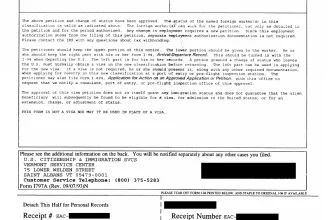“Stay informed and plan ahead with our guide to British citizenship fees for 2023.”
This guide provides a comprehensive overview of the latest British citizenship fees for 2023. It is designed to assist applicants and explorers in understanding the costs associated with obtaining British citizenship. The guide covers the various fees involved in the application process, including naturalization fees, registration fees, and other associated costs. By providing a clear and concise breakdown of the fees, this guide aims to help individuals make informed decisions about their citizenship applications.
Overview of British Citizenship Fees for 2023
British citizenship is a highly sought-after status that offers a range of benefits, including the right to live and work in the UK, access to public services, and the ability to travel freely within the European Union. However, the process of obtaining British citizenship can be complex and costly, with a range of fees and charges that applicants must pay.
If you are considering applying for British citizenship in 2023, it is important to be aware of the latest fees and charges. In this comprehensive guide, we will provide an overview of the British citizenship fees for 2023, including the application fees, the cost of the Life in the UK test, and other associated charges.
Application Fees
The application fee is the main cost associated with applying for British citizenship. In 2023, the application fee for adults will be £1,330, while the fee for children under 18 will be £1,012. These fees are subject to change, so it is important to check the latest information before submitting your application.
In addition to the application fee, there may be other charges associated with your application. For example, if you are applying for citizenship based on your marriage or civil partnership to a British citizen, you may need to pay an additional fee of £80 for the citizenship ceremony.
Life in the UK Test
Another cost associated with applying for British citizenship is the Life in the UK test. This test is designed to assess your knowledge of British history, culture, and society, and is a requirement for most applicants.
In 2023, the cost of the Life in the UK test will be £50. This fee is payable when you book your test, and is non-refundable if you fail or cancel your test.
Other Associated Charges
There may be other charges associated with your application for British citizenship, depending on your individual circumstances. For example, if you need to provide biometric information (such as fingerprints and a photograph), you may need to pay an additional fee of £19.20.
If you need to apply for a British passport after obtaining citizenship, there will be additional fees to pay. The cost of a standard adult passport is currently £75.50, while the cost of a child passport is £49.
It is important to note that these fees are subject to change, and may be higher in 2023. It is therefore important to check the latest information before submitting your application.
Conclusion
Obtaining British citizenship can be a complex and costly process, with a range of fees and charges that applicants must pay. In 2023, the main application fee for adults will be £1,330, while the fee for children under 18 will be £1,012. In addition to the application fee, there may be other charges associated with your application, such as the cost of the Life in the UK test and biometric information.
If you are considering applying for British citizenship in 2023, it is important to be aware of these fees and charges, and to budget accordingly. By understanding the costs involved, you can ensure that you are fully prepared for the application process, and can avoid any unexpected expenses.
Step-by-Step Guide to Applying for British Citizenship
As the world becomes more interconnected, many people are looking to move to new countries for work, study, or simply to start a new life. For those considering a move to the United Kingdom, one of the most important steps is obtaining British citizenship. However, the process can be complex and confusing, especially when it comes to the fees involved. In this article, we will provide a comprehensive guide to the latest British citizenship fees for 2023, including a step-by-step guide to the application process.
Step 1: Determine Your Eligibility
Before you can apply for British citizenship, you must first determine whether you are eligible. There are several ways to become eligible, including:
– Being born in the UK to a British parent
– Being born outside the UK to a British parent
– Living in the UK for a certain period of time (usually five years) and meeting other requirements, such as passing a language test and not having a criminal record
If you are unsure whether you are eligible, you can use the UK government’s online tool to check.
Step 2: Choose Your Application Type
Once you have determined your eligibility, you will need to choose the type of application you want to make. There are several options available, including:
– Naturalisation: This is the most common way to become a British citizen. You must have lived in the UK for at least five years (or three years if you are married to a British citizen) and meet other requirements.
– Registration: This is a simpler process than naturalisation and is available to certain groups, such as children born in the UK to non-British parents.
– Right of Abode: This is a special status that allows you to live and work in the UK without any immigration restrictions. It is available to certain groups, such as Commonwealth citizens with a British grandparent.
Step 3: Calculate Your Fees
Once you have chosen your application type, you will need to calculate your fees. The fees vary depending on the type of application you are making and whether you are applying from inside or outside the UK. As of 2023, the fees are as follows:
– Naturalisation: £1,330 for adults and £1,012 for children
– Registration: £1,012 for adults and £973 for children
– Right of Abode: £372 for adults and £186 for children
In addition to these fees, there may be additional costs for things like language tests and biometric appointments.
Step 4: Gather Your Documents
Before you can submit your application, you will need to gather all the necessary documents. These may include:
– Your passport or other travel documents
– Proof of your residency in the UK
– Proof of your English language proficiency
– Proof of your knowledge of life in the UK
– Any other documents required for your specific application type
Step 5: Submit Your Application
Once you have gathered all your documents and paid your fees, you can submit your application. You can do this online or by post, depending on your application type. The processing time for applications varies, but you can expect to wait several months before receiving a decision.
In conclusion, obtaining British citizenship can be a complex and expensive process, but it is an important step for those looking to make a new life in the UK. By following this comprehensive guide to the latest British citizenship fees for 2023 and the step-by-step application process, you can ensure that you are well-prepared and have the best chance of success.
Understanding the Different Types of British Citizenship Fees
As an applicant or explorer looking to obtain British citizenship, it is important to understand the different types of fees that are associated with the process. The fees vary depending on the type of application, the age of the applicant, and the method of application. In this comprehensive guide, we will explore the latest British citizenship fees for 2023 and provide you with all the information you need to make an informed decision.
Firstly, let’s take a look at the different types of fees that are associated with the British citizenship application process. The main fees include the application fee, the citizenship ceremony fee, and the biometric enrolment fee. The application fee is the fee that is paid when submitting the application and is non-refundable. The citizenship ceremony fee is paid once the application has been approved and the applicant is required to attend a citizenship ceremony. The biometric enrolment fee is paid when the applicant attends an appointment to have their biometric information taken.
The application fee varies depending on the type of application and the age of the applicant. For adult naturalisation applications, the fee is currently £1,330. For child naturalisation applications, the fee is currently £1,012. For registration applications, the fee is currently £1,206 for adults and £1,012 for children. It is important to note that these fees are subject to change and may increase in 2023.
In addition to the application fee, applicants are also required to pay a citizenship ceremony fee. The current fee for a citizenship ceremony is £80. This fee is also subject to change and may increase in 2023. The citizenship ceremony fee is paid once the application has been approved and the applicant is required to attend a citizenship ceremony. The ceremony is a formal event where the applicant takes an oath of allegiance to the Queen and receives their certificate of British citizenship.
Finally, applicants are also required to pay a biometric enrolment fee. The current fee for biometric enrolment is £19.20. This fee is paid when the applicant attends an appointment to have their biometric information taken. Biometric information includes fingerprints and a photograph. This information is used to create a biometric residence permit (BRP) which is a secure document that confirms the applicant’s right to live and work in the UK.
It is important to note that there may be additional fees associated with the application process. For example, if an applicant requires a fast-track service or a premium service, they may be required to pay an additional fee. These fees vary depending on the service and are subject to change.
In conclusion, understanding the different types of British citizenship fees is essential for anyone looking to obtain British citizenship. The fees vary depending on the type of application, the age of the applicant, and the method of application. It is important to note that these fees are subject to change and may increase in 2023. By being aware of the fees and the application process, applicants can make an informed decision and ensure that they have all the necessary funds to complete the process.
How to Pay for British Citizenship Fees
British citizenship is a highly sought-after status that offers a range of benefits, including the right to live and work in the UK, access to public services, and the ability to vote in elections. However, the process of obtaining British citizenship can be complex and expensive, with a range of fees and charges to consider. In this article, we will explore the latest British citizenship fees for 2023 and provide a comprehensive guide for applicants and explorers.
One of the most important aspects of the British citizenship application process is understanding how to pay for the various fees and charges. There are several different fees that applicants may need to pay, depending on their circumstances and the type of application they are making.
The first fee that most applicants will need to pay is the application fee. This fee covers the cost of processing the application and is currently set at £1,330 for adult applicants. For children under the age of 18, the fee is slightly lower at £1,012. It is important to note that these fees are subject to change, so it is always a good idea to check the latest fees before submitting an application.
In addition to the application fee, there are several other fees that applicants may need to pay. For example, if an applicant is required to take the Life in the UK test, they will need to pay a fee of £50. Similarly, if an applicant needs to provide biometric information (such as fingerprints and a photograph), they will need to pay a fee of £19.20.
Another fee that applicants may need to pay is the citizenship ceremony fee. This fee is currently set at £80 and covers the cost of attending a citizenship ceremony, where applicants will receive their certificate of British citizenship. It is important to note that this fee is only payable if an applicant’s application is successful.
So, how can applicants pay these fees? There are several different payment methods available, including online payment, postal order, and bank transfer. Online payment is the most convenient option, as it allows applicants to pay using a debit or credit card. Postal orders can also be used, but they must be made payable to ‘Home Office’ and sent by post. Bank transfers are also accepted, but applicants will need to provide their payment reference number and ensure that the correct amount is transferred.
It is important to note that applicants should only pay the fees once they have submitted their application. This is because the fees are non-refundable, even if an application is unsuccessful. It is also important to ensure that the correct fees are paid, as incorrect payments may result in delays or even the rejection of an application.
In conclusion, understanding how to pay for British citizenship fees is an important part of the application process. Applicants should be aware of the various fees and charges that may apply, as well as the different payment methods available. By following these guidelines, applicants can ensure that their application is processed smoothly and efficiently, and that they are able to obtain the British citizenship status they desire.
Tips for Writing a Sponsor Letter for UK Visa

If you are planning to apply for British citizenship, it is important to be aware of the latest fees that you will need to pay. The UK government regularly updates its fees for citizenship applications, and the latest changes will come into effect in 2023. In this article, we will provide a comprehensive guide to the latest British citizenship fees, including the different types of applications and the associated costs.
Firstly, it is important to note that the fees for British citizenship applications vary depending on the type of application you are making. The most common types of applications are naturalisation, registration, and citizenship by descent. Naturalisation is the process of becoming a British citizen if you are not already a citizen of the UK or a British overseas territory. Registration is the process of becoming a British citizen if you are already living in the UK and meet certain eligibility criteria. Citizenship by descent is the process of becoming a British citizen if you were born outside the UK to a British parent.
The fees for naturalisation applications will increase from £1,330 to £1,362 in 2023. This fee includes the cost of processing your application and conducting a citizenship ceremony if your application is successful. The fee for registration applications will increase from £1,206 to £1,238 in 2023. This fee includes the cost of processing your application and conducting a citizenship ceremony if your application is successful. The fee for citizenship by descent applications will increase from £1,012 to £1,044 in 2023. This fee includes the cost of processing your application and issuing your certificate of registration as a British citizen.
In addition to the fees for the application itself, there are also additional fees that you may need to pay depending on your circumstances. For example, if you need to take the Life in the UK test as part of your application, you will need to pay a fee of £50. If you need to provide biometric information (such as fingerprints and a photograph) as part of your application, you will need to pay a fee of £19.20.
It is also worth noting that there are certain exemptions and discounts available for some applicants. For example, if you are applying for naturalisation and are over 65 years old, you may be eligible for a discount on the application fee. Similarly, if you are applying for citizenship by descent and are under 18 years old, you may be eligible for a reduced fee.
If you are applying for British citizenship, you may also need to provide a sponsor letter as part of your application. A sponsor letter is a letter from someone who knows you well and can vouch for your character and suitability to become a British citizen. This could be a friend, family member, employer, or someone else who has known you for a significant period of time.
When writing a sponsor letter, it is important to be clear and concise. You should explain how you know the applicant and why you believe they would make a good British citizen. You should also provide specific examples of the applicant’s good character and contributions to their community. It is also important to include your contact details so that the Home Office can verify the information in your letter if necessary.
In conclusion, if you are planning to apply for British citizenship, it is important to be aware of the latest fees and requirements. The fees for citizenship applications will increase in 2023, so it is important to plan accordingly. If you need to provide a sponsor letter as part of your application, be sure to follow the guidelines and provide clear and concise information. With the right preparation and documentation, you can increase your chances of a successful application and becoming a British citizen.
Importance of Invitation Letter for UK Visa
As an applicant or explorer seeking British citizenship, it is important to understand the latest fees and requirements for the process. One crucial aspect of the application process is obtaining a UK visa, which requires an invitation letter from a sponsor in the UK. In this article, we will explore the importance of the invitation letter and how it can impact your application.
Firstly, it is important to understand what an invitation letter is and why it is required. An invitation letter is a document written by a sponsor in the UK, inviting you to visit or stay with them for a specific period of time. This letter serves as proof that you have a legitimate reason for visiting the UK and that you have a sponsor who will support you during your stay.
When applying for a UK visa, the invitation letter is a crucial component of your application. Without it, your application may be rejected or delayed. The letter should include important details such as the purpose of your visit, the duration of your stay, and the sponsor’s contact information. It should also state that the sponsor will provide financial support for your trip and that you will not need to rely on public funds.
In addition to providing proof of your reason for visiting the UK, the invitation letter also demonstrates that you have a genuine relationship with your sponsor. This is important because the UK government wants to ensure that visitors are not using the visa system to enter the country illegally or to work without proper authorization. By having a sponsor who can vouch for your character and intentions, you are more likely to be granted a visa.
It is important to note that the invitation letter is not the only factor that will be considered when assessing your visa application. Other factors such as your financial situation, travel history, and criminal record will also be taken into account. However, the invitation letter can play a significant role in demonstrating your eligibility for a visa.
If you are unsure about how to obtain an invitation letter, there are several resources available to help you. You can contact the UK embassy or consulate in your country for guidance, or you can seek the assistance of a visa application service. These services can help you navigate the application process and ensure that you have all the necessary documents and information.
In conclusion, the invitation letter is a crucial component of the UK visa application process. It serves as proof of your reason for visiting the UK and demonstrates that you have a legitimate sponsor who will support you during your stay. By understanding the importance of the invitation letter and ensuring that you have a strong relationship with your sponsor, you can increase your chances of being granted a visa and ultimately achieving your goal of obtaining British citizenship.
Sample Sponsorship Letter for UK Visa
As an applicant or explorer looking to obtain British citizenship, it is important to be aware of the latest fees associated with the process. The UK government has recently announced changes to the fees for various citizenship applications, which will come into effect from 6 April 2023. This comprehensive guide will provide you with all the information you need to know about the latest British citizenship fees.
Firstly, it is important to note that the fees for citizenship applications vary depending on the type of application you are making. The most common types of applications are naturalisation, registration, and the right of abode. The fees for these applications are as follows:
– Naturalisation: The fee for naturalisation applications will increase from £1,330 to £1,362. This fee applies to those who have been living in the UK for at least five years and meet the other eligibility requirements for naturalisation.
– Registration: The fee for registration applications will increase from £1,012 to £1,033. This fee applies to those who are eligible for registration as a British citizen, such as children born in the UK to non-British parents.
– Right of abode: The fee for right of abode applications will increase from £372 to £381. This fee applies to those who have the right to live and work in the UK without any immigration restrictions.
In addition to these fees, there are also fees for other types of citizenship applications, such as those for British overseas territories citizens, British nationals (overseas), and those who are stateless. The fees for these applications are as follows:
– British overseas territories citizens: The fee for applications for registration as a British overseas territories citizen will increase from £1,012 to £1,033.
– British nationals (overseas): The fee for applications for registration as a British national (overseas) will increase from £1,012 to £1,033.
– Stateless: The fee for applications for registration as a stateless person will increase from £1,012 to £1,033.
It is important to note that these fees are subject to change and may be updated in the future. It is recommended that you check the latest fees before submitting your application to ensure that you are paying the correct amount.
In addition to the application fees, there are also fees for other services related to citizenship applications. These include fees for citizenship ceremonies, citizenship certificates, and the premium service for faster processing of applications. The fees for these services are as follows:
– Citizenship ceremonies: The fee for a citizenship ceremony will increase from £80 to £82.
– Citizenship certificates: The fee for a citizenship certificate will increase from £80 to £82.
– Premium service: The fee for the premium service will increase from £610 to £623. This service allows applicants to have their application processed faster, usually within 24 hours.
It is important to note that the premium service is only available for certain types of applications and is subject to availability. It is also important to note that the premium service fee is in addition to the application fee.
In conclusion, obtaining British citizenship can be a complex process, and it is important to be aware of the latest fees associated with the process. The fees for citizenship applications vary depending on the type of application you are making, and there are also fees for other services related to citizenship applications. It is recommended that you check the latest fees before submitting your application to ensure that you are paying the correct amount. With this comprehensive guide, you can be confident in your understanding of the latest British citizenship fees and can proceed with your application with ease.
How to Obtain a UK Visit Visa Sponsor Letter
If you’re planning to visit the UK, you’ll need to obtain a visit visa sponsor letter. This letter is a crucial document that confirms your purpose of travel and your sponsor’s willingness to support you during your stay in the UK. In this article, we’ll guide you through the process of obtaining a UK visit visa sponsor letter.
Firstly, it’s important to understand who can act as your sponsor. Your sponsor can be a family member, friend, or business associate who is a UK citizen or permanent resident. They must be willing to provide you with accommodation, financial support, and any other necessary assistance during your stay in the UK.
To obtain a sponsor letter, you’ll need to provide your sponsor with the necessary information and documents. This includes your passport details, travel itinerary, and proof of financial support. Your sponsor will then need to write a letter confirming their relationship with you, the purpose of your visit, and their willingness to support you during your stay.
It’s important to note that your sponsor’s letter should be written on official letterhead and signed by them. It should also include their contact details and a statement confirming that they will be responsible for your expenses during your stay in the UK.
Once you have obtained your sponsor letter, you can then apply for your visit visa. You’ll need to complete an online application form and provide supporting documents, including your sponsor letter, passport, and proof of financial support. You may also be required to attend an interview at your local UK embassy or consulate.
The cost of a UK visit visa varies depending on the length of your stay and the type of visa you require. As of 2023, the fees for a standard visit visa are as follows:
– Up to 6 months: £95
– Up to 2 years: £361
– Up to 5 years: £655
– Up to 10 years: £822
It’s important to note that these fees are subject to change, so it’s always a good idea to check the latest fees before applying for your visa.
In conclusion, obtaining a UK visit visa sponsor letter is an important step in the visa application process. Your sponsor should be someone who is willing to support you during your stay in the UK and can provide you with the necessary accommodation and financial assistance. Once you have obtained your sponsor letter, you can then apply for your visit visa and pay the necessary fees. By following these steps, you’ll be well on your way to exploring all that the UK has to offer.
Family Sponsorship Letter for Visa: What You Need to Know
If you are planning to apply for British citizenship, it is important to be aware of the latest fees that you will need to pay. The fees for British citizenship applications are reviewed annually, and the latest fees for 2023 have recently been announced. In this article, we will provide a comprehensive guide to the latest British citizenship fees for 2023, including the fees for different types of applications and the fees for other related services.
One of the most common types of British citizenship applications is through naturalization. The fee for a naturalization application in 2023 will be £1,330. This fee includes the cost of processing your application and conducting a citizenship ceremony if your application is successful. If you are applying for naturalization as a British citizen through marriage or civil partnership, the fee will be the same.
If you are applying for British citizenship through registration, the fee will depend on the type of registration you are applying for. The fee for a child under 18 years of age to register as a British citizen will be £1,012. The fee for an adult to register as a British citizen will be £1,206. If you are applying for registration as a British citizen through a British parent or grandparent, the fee will be the same.
In addition to the fees for citizenship applications, there are also fees for other related services. For example, if you need to apply for a British passport after you have been granted citizenship, the fee for a standard adult passport will be £85. If you need to apply for an urgent passport, the fee will be higher.
If you need to apply for a certificate of entitlement to the right of abode, the fee will be £372. This certificate confirms that you have the right to live and work in the UK without any immigration restrictions. If you need to apply for a certificate of entitlement to the right of abode, you will need to provide evidence that you are a British citizen or that you have a connection to the UK that gives you the right to live and work here.
It is important to note that the fees for British citizenship applications are non-refundable. This means that if your application is unsuccessful, you will not be able to get a refund of the fee that you paid. It is therefore important to ensure that you meet all the eligibility criteria and provide all the required documents before you submit your application.
If you are applying for British citizenship through naturalization, you will also need to provide a family sponsorship letter for visa. This letter is a formal document that explains why you are applying for British citizenship and how you meet the eligibility criteria. The letter should be written by someone who knows you well and can provide evidence of your character and good standing in the community.
When writing a family sponsorship letter for visa, it is important to be clear and concise. You should explain why you want to become a British citizen and how you meet the eligibility criteria. You should also provide evidence of your good character and standing in the community, such as references from employers, community leaders, or other respected members of society.
In conclusion, if you are planning to apply for British citizenship, it is important to be aware of the latest fees that you will need to pay. The fees for British citizenship applications are reviewed annually, and the latest fees for 2023 have recently been announced. In addition to the fees for citizenship applications, there are also fees for other related services, such as passports and certificates of entitlement to the right of abode. If you are applying for British citizenship through naturalization, you will also need to provide a family sponsorship letter for visa. By being aware of the latest fees and requirements, you can ensure that your application is successful and that you can enjoy all the benefits of being a British citizen.
Common Mistakes to Avoid When Applying for British Citizenship
Applying for British citizenship can be a complex and daunting process, especially for those who are unfamiliar with the requirements and fees involved. In this article, we will explore some common mistakes that applicants make when applying for British citizenship and provide tips on how to avoid them.
One of the most common mistakes that applicants make is failing to meet the residency requirements. To be eligible for British citizenship, applicants must have lived in the UK for a certain period of time, usually five years. During this time, they must have held a valid visa or residency permit and not have spent more than 450 days outside the UK. It is important to keep track of your time spent outside the UK and ensure that you meet the residency requirements before applying for citizenship.
Another mistake that applicants make is failing to provide accurate and complete information on their application form. This can lead to delays in processing and even rejection of the application. It is important to read the instructions carefully and provide all the required information, including details of any criminal convictions or previous immigration applications.
Applicants should also ensure that they meet the English language and knowledge of life in the UK requirements. To be eligible for British citizenship, applicants must pass the Life in the UK test and demonstrate a certain level of proficiency in English. It is important to prepare for these tests and ensure that you meet the requirements before applying for citizenship.
One mistake that applicants often make is failing to pay the correct fees. The fees for British citizenship can be quite high, and it is important to ensure that you have enough funds to cover the costs. The fees for 2023 have not yet been announced, but it is important to check the latest fees before applying for citizenship.
Another mistake that applicants make is failing to provide the correct supporting documents. The Home Office requires a range of documents to support your application, including proof of identity, residency, and English language proficiency. It is important to ensure that you have all the required documents before submitting your application.
Finally, applicants should avoid using fraudulent or dishonest means to obtain British citizenship. This can include using false documents or providing false information on your application. Not only is this illegal, but it can also lead to your application being rejected and even criminal charges being brought against you.
In conclusion, applying for British citizenship can be a complex process, but by avoiding these common mistakes, you can increase your chances of success. It is important to meet the residency requirements, provide accurate and complete information, meet the English language and knowledge of life in the UK requirements, pay the correct fees, provide the correct supporting documents, and avoid using fraudulent or dishonest means. By following these tips, you can navigate the application process with confidence and achieve your goal of becoming a British citizen.
Q&A
1. What are the latest British citizenship fees for 2023?
The latest British citizenship fees for 2023 have not been announced yet.
2. When will the latest British citizenship fees for 2023 be announced?
The latest British citizenship fees for 2023 will be announced closer to the end of 2022.
3. How much does it cost to apply for British citizenship?
The current fee for a standard adult British citizenship application is £1,330.
4. Are there any additional fees for the British citizenship application?
There may be additional fees for services such as the Life in the UK test or the English language test.
5. How much does the Life in the UK test cost?
The current fee for the Life in the UK test is £50.
6. How much does the English language test cost?
The cost of the English language test varies depending on the test provider and location.
7. Are there any fee waivers available for the British citizenship application?
Fee waivers may be available for those who cannot afford the application fee.
8. How can I pay the British citizenship application fee?
The application fee can be paid online using a debit or credit card.
9. Can I get a refund if my British citizenship application is rejected?
No, the application fee is non-refundable even if the application is rejected.
10. How long does it take to process a British citizenship application?
The processing time for a British citizenship application can vary, but it usually takes around 6 months.








